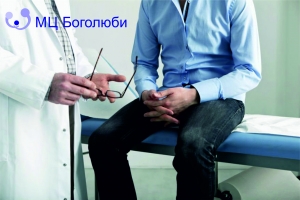Pain in the testicles in medical circles is called orchialgia and means painful sensitivity of one or two testicles and the area around them, sometimes extending along the spermatic cord to the lower abdomen. This symptom can have a variety of causes and acquire different characteristics, depending on the underlying condition. As a rule, orchialgia occurs in combination with other symptoms, which also vary depending on the causative factor.
What are the reasons?
Pain in the ovaries can be the result of a variety of conditions, from inflammation from trauma, infection, or pressure from too tight clothing to testicular cancer. Usually , orchialgia is caused by various pathologies that affect the testicles and / or associated formations, such as the epididymis and scrotum. Sometimes this symptom is a reflex, that is, it is not directly related to the pathology of the testicles.
The most common reason is trauma. It causes a sharp pain that passes quickly and without complications. However, if the blow is severe, it can cause a hematocele (accumulation of blood around the testicle), a condition requiring emergency medical attention.
Other common causes of orchialgia are: epididymitis; varicocele ; orchitis; hydrocele ; epididymal cyst. Less common but potentially dangerous causes of testicular pain include: testicular torsion; epididymal hypertension; testicular cancer; testicular pain reflex.
As mentioned above, in some cases there is a reflex orchialgia , that is, related to the testicle, but caused by other types of disease. The cause of the problem may be, for example, an inguinal hernia, due to the descent of part of the intestine into the scrotum; the presence of kidney stones; prostate inflammation and neuropathy.
Other possible causes of testicular pain include:
• diabetic neuropathy ;
• mumps;
• urinary tract infection;
• idiopathic testicular pain (of unknown cause).
How does orchialgia manifest itself ?
Depending on the provocative cause, pain in the testicles can be acute, chronic, sore, intermittent or constant. The symptom is not always limited to the testicles, but may radiate towards the inguinal, lumbar and perineal region.
Other signs accompanying orchialgia : a feeling of heaviness, swelling and redness of the scrotum, pain when urinating, the presence of local edema or a mass palpated at the level of the testicle. Sometimes the pain worsens after prolonged sitting or physical activity.
In addition to these manifestations, a combination of general symptoms may also be present, which then become more specific (eg, fever, chills and malaise, abdominal pain, nausea, vomiting) .
When to see a doctor?
Any sudden and severe pain associated with a feeling of tightness in the testicle requires an immediate medical examination. Even if you have a dull pain that affects the scrotum and lasts only a few days, and is not associated with a specific cause, you should consult a doctor.
Orchialgia should never be underestimated , as it can be a signal of serious fertility-related pathologies. For this reason, we recommend contacting a urologist at Bogoliuby Medical Center to diagnose the problem and select the most appropriate therapy.
The urological evaluation of testicular pain is primarily aimed at investigating possible causes. Diagnosis includes taking an anamnesis, a complete urological andrological examination, as well as additional studies: urine, blood, ultrasound of the scrotum, spermogram .
Treatment is aimed primarily at eliminating the causes of the condition. This may include medications or surgery. If the source of the problem is not clarified, then drugs are prescribed that stop the symptoms. These may include anti-inflammatory drugs such as ibuprofen, neuropathic pain medications. In the most severe cases, one has to resort to the removal of the testicle - orchiectomy .

















